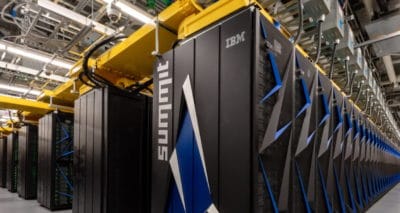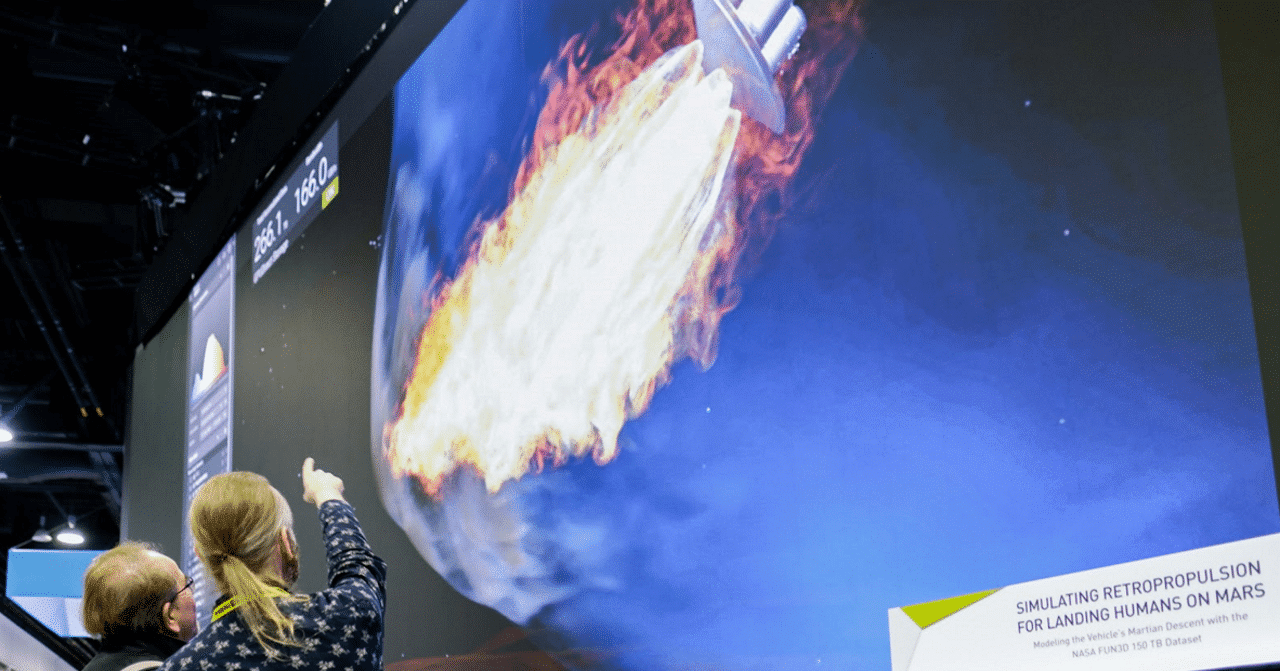Update: The HPC Summit Digital will be held online June 29-July 2, 2020 and is described in an blog here. Content from our 2020 GPU Technology Conference is now available online.
Every so often the scientists, researchers and engineers in high performance computing get a chance to take their work to the next level.
The HPC Summit, taking place March 25-26 in San Jose, is the community’s latest opportunity for a strategic refresh.
Speakers from across the HPC community will share their work driving science and technology forward, including important updates on GPU-accelerated applications, networking architectures and the latest systems and developer tools for x86, Power and Arm environments. It’s also an opportunity to spark fresh ideas and spawn new collaborations across the diverse HPC landscape.
HPC computing is expanding in all directions. The Summit supercomputer recently simulated and rendered the first interactive, real-time visualization of NASA’s massive dataset describing a vehicle for the first manned-mission to Mars. Back on Earth, IBM and government researchers just crafted a new HPC model that will deliver faster, more accurate weather forecasts to your smartphone.
At the HPC Summit, plenary speakers such as Richard Loft, a technology director at the National Center for Atmospheric Research, will talk about his team’s work harnessing emerging exascale systems and AI to create global climate models that span decades.

Jeff Nichols, associate laboratory director of Oak Ridge National Laboratory, will describe the impact on science as supercomputing evolves through exascale performance, AI and beyond. Oak Ridge is the home of Summit, the world’s most powerful supercomputer, which is already delivering 3.3 exaflops of mixed-precision horsepower on AI tasks.
Arming for the Exascale Era
In core technologies, the HPC Summit will provide a strategic update on Arm in high performance computing. The CPU architecture — ubiquitous in smartphones and IoT devices — is expanding the range of choices for the emerging exascale era.
Brent Gorda, senior director for HPC at Arm, will give a state of the union address on the Arm ecosystem in HPC. He’ll provide an update on the latest Arm supercomputer projects and take feedback on future directions. It’s an initiative NVIDIA officially joined when it announced in June support for CUDA on Arm.
The release in November of an NVIDIA reference design for GPU acceleration on Arm brought many new partners into the fold. It’s expected to be a hot topic of discussion at developer breakout sessions at the HPC Summit, where other Arm representatives will speak on its expanding HPC ecosystem.
The TOP500 list of the world’s fastest supercomputers already includes two Arm-based systems. Astra, deployed at Sandia National Laboratories, uses Marvell’s ThunderX2 processors linked on high-speed interconnects from Mellanox. Fujitsu’s A64FX prototype is a precursor to an exascale system set to be running in Japan in 2021.
Onramps to Supercomputers and Clouds
The HPC Summit hosts several plenary speakers who are leaders from both commercial and research fields. They include Ashok Belani, executive vice president of technology for Schlumberger, and Thomas Schulthess, a professor of computational physics at ETH Zurich and director of the Swiss National Supercomputing Center.
A data center track will offer best practices for tapping into hyperscale cloud services.
For example, Alan Chalker, director of strategic programs at the Ohio Supercomputer Center, will describe the Open OnDemand Project, a popular web-based gateway, giving researchers and engineers access to powerful HPC systems.
Nidhi Chappell, who heads up HPC and AI efforts at Microsoft Azure, will provide her insights. Separately, Mellanox Technologies will describe an emerging class of I/O processors that can help speed work in HPC and AI in the cloud or at the edge of the network.
The HPC Summit provides plenty of opportunities for human networking, too.
A morning panel of experts will field questions about the latest GPU technologies and tools and give the community a chance to give feedback. They’ll cover a broad range of topics including libraries, hardware, platform support, developer tools and more.

In the afternoon, a developer’s forum also will include Q&A with experts. They’ll answer questions and take feedback on future directions in programming models and languages, math libraries, HPC+AI, data science, mixed precision, Arm, multi-GPU programming, message passing and other topics.
The event is co-located with the annual NVIDIA GPU Technology Conference (GTC), so you can bet there will be plenty of news to discuss.
An opportunity to take your work to the next level starts when you register for the HPC Summit at GTC. If you want to dive deeper into 600+ industry-focused talks, register for GTC and freely attend the HPC Summit as part of your pass.
